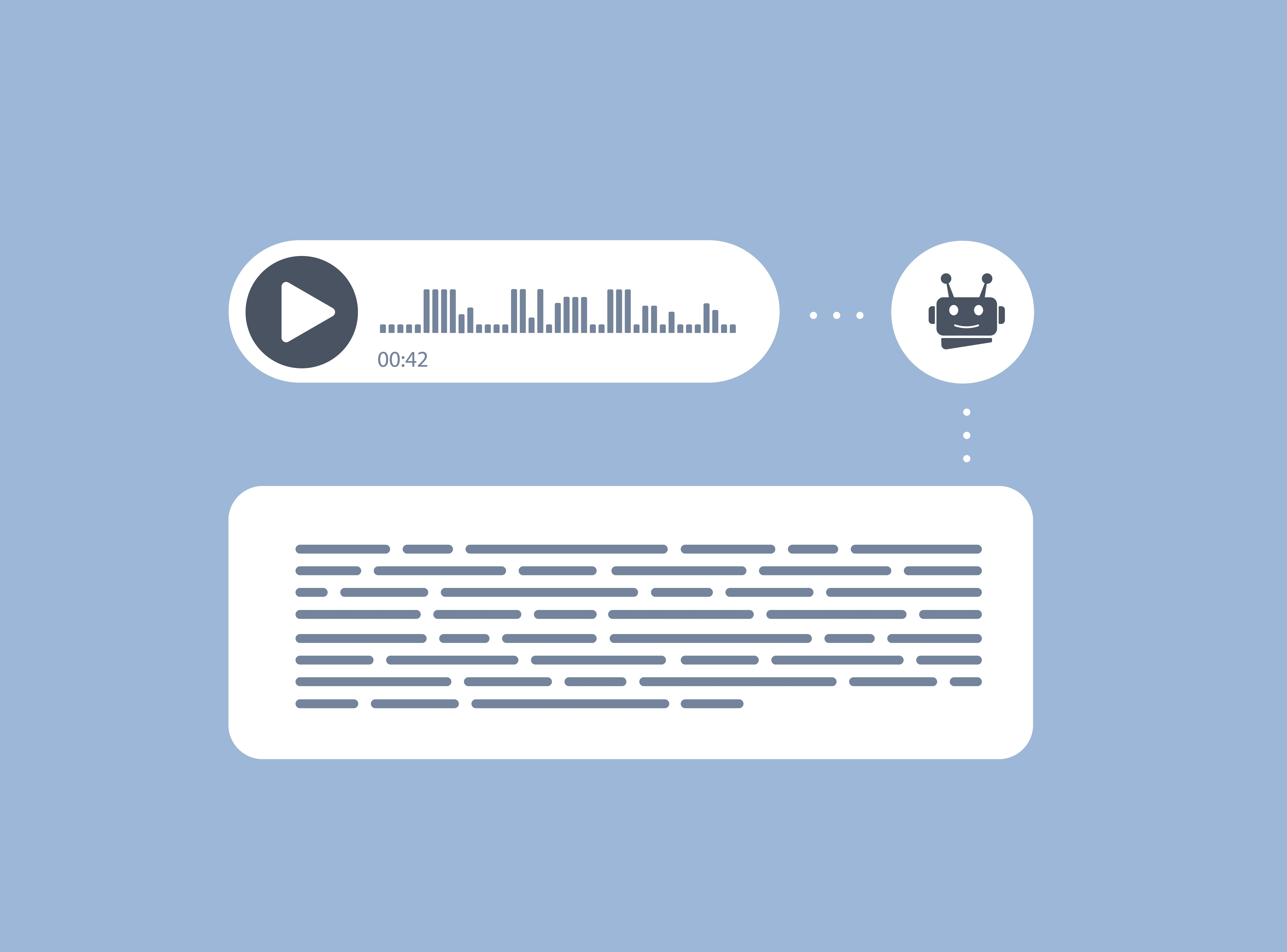
AI transcription, powered by advanced machine learning algorithms, has revolutionized the process of converting audio recordings into text. However, like any technology, AI transcription is not without its limitations and challenges. In this article, we’ll explore some common issues with AI transcription and discuss whether human transcription is a better alternative.
Accuracy
One of the primary challenges with AI transcription is accuracy. While AI algorithms have made significant strides in understanding and transcribing human speech, they are still prone to errors, especially in cases of background noise, accents, or technical terminology. Even minor inaccuracies in transcription can lead to misunderstandings or misinterpretations of the content, highlighting the importance of thorough proofreading and editing.
Context Understanding
AI transcription tools may struggle to accurately capture the context of a conversation or presentation, particularly in complex or nuanced discussions. Understanding context requires more than just transcribing words; it involves interpreting tone, intent, and cultural nuances, which can be challenging for AI algorithms. As a result, AI transcription may sometimes produce transcripts that lack context or fail to convey the full meaning of the original audio recording.
Speaker Identification
In multi-speaker scenarios, such as meetings or interviews, accurately identifying and attributing speech to individual speakers can be difficult for AI transcription tools. Without proper speaker identification, transcripts may lack clarity and coherence, making it challenging for readers to follow the conversation or distinguish between speakers. Human transcriptionists often excel in speaker identification, as they can use contextual cues and voice characteristics to differentiate speakers more accurately.
Technical Jargon and Accents
AI transcription tools may struggle to transcribe technical jargon or accents that deviate from standard speech patterns. Words or phrases that are not recognized by the AI algorithm may be incorrectly transcribed or omitted altogether, leading to inaccuracies in the transcript. Human transcriptionists, especially those with domain-specific knowledge or familiarity with regional accents, are better equipped to handle these challenges and produce more accurate transcriptions.
Editing and Formatting
While AI transcription tools can generate transcripts quickly, they often lack the ability to perform complex editing and formatting tasks. Cleaning up transcripts, correcting errors, and formatting text for readability may require additional manual intervention, negating some of the time-saving benefits of AI transcription. Human transcriptionists can provide more polished and refined transcripts, with attention to detail and adherence to formatting guidelines.
Is Human Transcription Better Than AI?
The question of whether human transcription is better than AI depends on various factors, including the specific requirements of your transcription project, the level of accuracy and context needed, and your budget and time constraints. While AI transcription offers speed and efficiency, human transcriptionists bring a level of accuracy, understanding, and attention to detail that AI algorithms may struggle to match.
Human transcription is often preferred in scenarios where accuracy and context understanding are critical, such as legal proceedings, medical documentation, or academic research. Additionally, human transcriptionists can offer specialized expertise in niche industries or domains, providing more accurate transcriptions of technical or specialized content.
However, AI transcription can still be a valuable tool for certain applications, such as generating rough drafts or quickly transcribing straightforward audio recordings. By leveraging the strengths of both AI and human transcription, organizations can achieve a balance between speed, accuracy, and cost-effectiveness in their transcription efforts.
Conclusion
While AI transcription has made significant advancements in recent years, it still faces several challenges and limitations, including accuracy, context understanding, speaker identification, and handling technical jargon and accents. Human transcriptionists offer a higher level of accuracy, context understanding, and editing capabilities, making them a preferred choice for many transcription projects, especially those requiring precision and attention to detail. However, AI transcription can still be a useful tool for generating rough drafts or transcribing straightforward audio recordings quickly. By understanding the strengths and limitations of both AI and human transcription, organizations can make informed decisions about which approach best meets their transcription needs.
Need Audio Documentation Equipment in Seattle, WA?
Welcome to Efficiency, Inc.! Efficiency, Inc. is a woman-owned and -operated voice processing solutions company in Seattle that services the Pacific Northwest. We offer courtroom recording and transcription equipment and software. We also offer dictation solutions that are available for single-hand or hands-free operation. Our audio and video solutions can also help with court and interview room recordings. Since 1954, we have been providing courtroom equipment as well as voice processing solutions for a wide spectrum of businesses and organizations. Our products use the latest technologies and come with on-site or remote support, installation, and training — all provided by your Efficiency team. Call us today!
